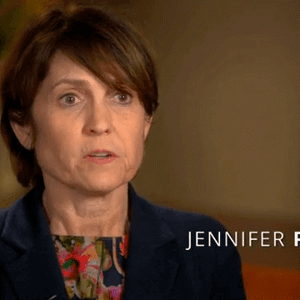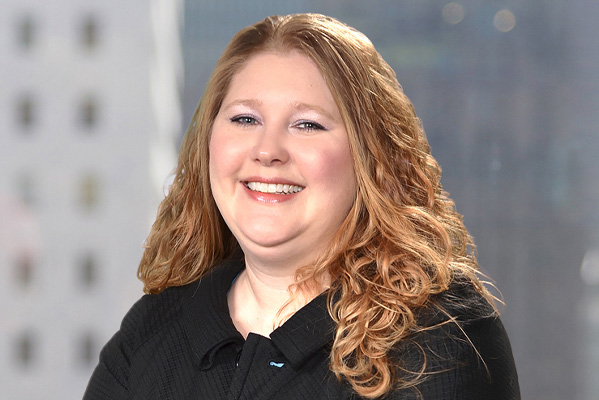

Washington Child Custody Lawyers
Protecting Children and Supporting Parents Across Washington
Reviewed by Rita Herrera Irvin, J.D., Founder of McKinley Irvin
When parents separate or divorce, few questions are more emotional—or more important—than how their children’s time and care will be shared. In Washington, these arrangements are decided through a parenting plan—a detailed court order that outlines where children live, how time is divided, and who makes major decisions about education, healthcare, and upbringing.
For more than three decades, McKinley Irvin has helped parents across Washington navigate custody and parenting plan matters with clarity, compassion, and respect. We understand how deeply these decisions affect families. Our attorneys combine legal skill with genuine care, guiding clients toward solutions that protect their children’s well-being, encourage cooperation, and bring lasting stability to both homes
Whether you’re just beginning the process or facing changes to an existing parenting plan, knowing what to expect can help you feel more confident and prepared.
What to Expect in a Washington Custody Case
A custody matter follows a defined process centered on the best interests of the child. While each family’s situation is unique, most cases in King, Pierce, Snohomish, and Clark Counties include these steps:
- Filing a Petition – One parent files a Petition for Parenting Plan or includes it within a divorce.
- Temporary Orders – The court may issue a temporary parenting schedule while the case is pending.
- Parenting Seminar – Both parents usually complete a county-approved co-parenting class to help reduce conflict.
- Mediation – Most families must attempt mediation under RCW 26.09.015 unless domestic violence makes it unsafe.
- Guardian ad Litem or Evaluation – If parents still disagree, the court may appoint a guardian ad litem (GAL) under RCW 26.12.175 or order a parenting evaluation.
- Final Hearing or Trial – The judge issues a final parenting plan consistent with RCW 26.09.187 – .191.
Cooperative cases can often be resolved within a few months. Contested matters—especially those involving relocation or complex family dynamics—may take a year or more. Throughout the process, we guide clients step-by-step, helping them make informed choices that keep the focus on their child’s safety and stability.
Frequently Asked Questions
-
How do Washington courts decide custody?
Washington uses parenting plans rather than the term “custody.” Under RCW 26.09.187, judges focus on stability, safety, and emotional health. They consider each parent’s caregiving history, the strength of parent-child relationships, continuity in schooling and community, and the ability of both parents to foster positive communication.
If parents cannot agree, the court may require mediation, appoint a GAL, or hold a trial. The resulting plan specifies residential time, decision-making authority, and how future disputes will be handled.
Example: A parent who has consistently handled school transportation, homework, and medical care is likely to continue in that role to maintain continuity.
-
Does the court favor mothers or fathers?
No. Washington’s Parenting Act is explicitly gender-neutral. Judges base decisions solely on the child’s best interests, not on a parent’s gender or income.
Across Washington—including courts in Seattle, Tacoma, Bellevue, Everett, and Vancouver—decisions reflect each family’s unique circumstances. Fathers and mothers are equally considered, and when one parent has been the consistent caregiver, courts often continue that arrangement to maintain the child’s stability. Parenting capacity, consistency, and cooperation—not gender—drive outcomes.
-
Can parents share 50/50 custody?
Yes. Equal residential schedules are allowed under RCW 26.09.187 when they serve the child’s best interests. Judges consider:
- Proximity between homes and schools
- Parents’ communication and cooperation skills
- The child’s age, temperament, and adaptability
Common patterns include week-on/week-off or 2-2-3 rotations. Equal plans work best when parents live near each other and maintain positive communication.
-
How long does a Washington custody case take?
It depends on the level of conflict and cooperation. Agreed plans may finalize in 2–4 months; contested cases with evaluations or relocation issues may take a year or more.
Temporary orders provide structure in the meantime. Early mediation, transparent communication, and completing required classes can help shorten the process.
Tip: Completing seminars and submitting proposed plans early can significantly reduce delay.
-
What if my child wants to live with one parent?
A child’s preference may be considered under RCW 26.09.187(3)(a)(v) but is never the sole deciding factor. Judges look at the child’s maturity, reasoning, and overall circumstances.
Example: A 15-year-old requesting to stay with one parent for school continuity may influence the outcome more than a younger child whose preference is less developed.
-
Can a parenting plan be modified?
Yes. Under RCW 26.09.260, a plan may be modified if there has been a substantial change in circumstances and the modification benefits the child.
Common reasons include relocation, changes in work schedules, or improved stability for one parent. Minor adjustments—such as exchange times or vacation weeks—can often be made by mutual agreement through a simple order.
Because stability is paramount, judges require clear evidence that the change helps the child more than it disrupts their routine.
Example: If a parent’s work shift changes from days to nights, the court may adjust weekday overnights while keeping the same primary home for school consistency.
-
What if there are safety issues or domestic violence?
Child safety is always the court’s top priority. RCW 26.09.191 requires restrictions or supervised visits when there is credible evidence of domestic violence, child abuse, or substance misuse.
Judges can order supervised visits, require counseling, or impose protective provisions under RCW 26.50. These measures are designed to keep children safe while supporting rehabilitation and eventual healthy parenting when possible.
Example: If a parent has prior assault convictions or restraining orders, the court may mandate professionally supervised visits until rehabilitation is demonstrated.
For more answers to child custody questions and other family law topics, visit our Family Law FAQ Hub. You’ll find over a dozen additional child custody FAQs, along with helpful information about divorce, parenting plans, child support, relocation, and modifications in Washington.
Choosing the Right Custody Attorney
Custody decisions can shape a child’s future and a parent’s peace of mind. You deserve a legal team that understands both the emotional weight and the legal complexity of these cases.
McKinley Irvin’s family law attorneys bring decades of experience, strategy, and empathy to every case. We listen closely, guide you through each step, and work toward solutions that protect your child’s safety, stability, and sense of belonging.
Whether you are creating a new parenting plan, modifying an existing order, or enforcing your rights, our attorneys serve families across Seattle, Tacoma, Bellevue, Everett, Vancouver, and throughout Washington State.
Learn more about Parenting Plan Modifications, Child Support in Washington, and other family-law topics that can help you prepare for the next step in your case.
Contact us or give us a call to schedule a consultation with a child custody attorney.
-
The Most Important Decision You Can Make in a Family Law Matter
-
When Should You Meet with a Divorce Attorney?
-
Leaders in Family Law
-
Our Unique Service Philosophy
-
 The Most Important Decision You Can Make in a Family Law Matter
The Most Important Decision You Can Make in a Family Law Matter -
 When Should You Meet with a Divorce Attorney?
When Should You Meet with a Divorce Attorney? -
 Leaders in Family Law
Leaders in Family Law -
 Our Unique Service Philosophy
Our Unique Service Philosophy

-
 Mark Arend Partner
Mark Arend Partner -
 Courtney Bellio Attorney
Courtney Bellio Attorney -
 Brent Bohan Partner
Brent Bohan Partner -
 Faye BreitReed Partner
Faye BreitReed Partner -
 Kimberly Brown Of Counsel
Kimberly Brown Of Counsel -
 Lindsay D. Camandona Partner
Lindsay D. Camandona Partner -
 Amy Carei Law Practice Supervising Attorney
Amy Carei Law Practice Supervising Attorney -
 Joe Crowell Senior Attorney
Joe Crowell Senior Attorney -
 Hillary Dawn Attorney
Hillary Dawn Attorney -
 Caitlin Dennis Attorney
Caitlin Dennis Attorney -
 Brian Edwards Partner
Brian Edwards Partner -
 Yina Finch Attorney
Yina Finch Attorney -
 Cameron Fleury Partner
Cameron Fleury Partner -
 Teresa Foster Partner in Charge, Vancouver, Partner
Teresa Foster Partner in Charge, Vancouver, Partner -
 Rainer Frank Senior Attorney
Rainer Frank Senior Attorney -
 Maria Gage Attorney
Maria Gage Attorney -
 Janet A. George Of Counsel
Janet A. George Of Counsel -
 Laura Grigore Attorney
Laura Grigore Attorney -
 David Gross Senior Attorney
David Gross Senior Attorney -
 Haley Helms Attorney
Haley Helms Attorney -
 Elizabeth Hoffman-Graff Partner
Elizabeth Hoffman-Graff Partner -
 Sarah Hovland Senior Attorney
Sarah Hovland Senior Attorney -
 Nathan Julius Senior Attorney
Nathan Julius Senior Attorney -
 Ericka Kendall Attorney
Ericka Kendall Attorney -
 Eric Leavitt Senior Attorney
Eric Leavitt Senior Attorney -
 Grace Lee Partner in Charge, Portland, Partner
Grace Lee Partner in Charge, Portland, Partner -
 Cindy Lee Attorney
Cindy Lee Attorney -
 Theresa R. Lorella Senior Attorney
Theresa R. Lorella Senior Attorney -
 Morgan Madison Attorney
Morgan Madison Attorney -
 Jane Malico Partner
Jane Malico Partner -
 Katie McGinley Senior Attorney
Katie McGinley Senior Attorney -
 Christa Melton Attorney
Christa Melton Attorney -
 Lawrence S. Merrifield, Jr. Senior Attorney
Lawrence S. Merrifield, Jr. Senior Attorney -
 Elizabeth Michelson Of Counsel
Elizabeth Michelson Of Counsel -
 Jessica Moore Senior Attorney
Jessica Moore Senior Attorney -
 Lindsay Noel Senior Attorney
Lindsay Noel Senior Attorney -
 Brendan J. O'Neill Attorney
Brendan J. O'Neill Attorney -
 Joel C. Odimba Jr. Attorney
Joel C. Odimba Jr. Attorney -
 Samuel Page Partner
Samuel Page Partner -
 Jennifer Payseno Partner
Jennifer Payseno Partner -
 Carry Porter Senior Attorney
Carry Porter Senior Attorney -
 Hillary Roberts-Griffith Partner
Hillary Roberts-Griffith Partner -
 John Rosecrans Partner
John Rosecrans Partner -
 Caitlin Royse Attorney
Caitlin Royse Attorney -
 Casey Sanders Senior Attorney
Casey Sanders Senior Attorney -
 Kim Schnuelle Senior Attorney
Kim Schnuelle Senior Attorney -
 David Starks Partner
David Starks Partner -
 Margaret Stewart Attorney
Margaret Stewart Attorney -
 Gordon W. Wilcox Of Counsel
Gordon W. Wilcox Of Counsel
Further Reading:































































